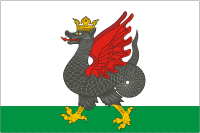Category: "Language"
Why are you speaking to me in English?
June 19th, 2012Here I am in Spain. I've spoken Spanish for over thirty years, so why the hell do they speak to me in English once I get two or three sentences out of my mouth? I mean, I have studied thirteen languages. Why don't they try my first in German or French or Spanish or even Finnish. (Only Finns speak Finnish, so really that one is not reasonable.) I mean, the first words out of my mouth in Barcelona were Catalan. At least the woman checking me in at the hotel had the decency to do most of the presentation in Spanish.
The situation has irritated me so much, that I've started asking around. The other night I asked the waiter how he knew to give me a menu in English. He paused and said, “We have menus in Spanish, Catalan and English, so when we see the blond hair, we give you English.” They do the same thing with Germans and Swedes and Finns because those nationalities have all studied English, and you simply can't produce menus in all the languages. Hmph. I really want to be offended, but I can't because that makes perfect sense. In the Frankfurt airport cafes, the Asian waitresses all speak in German or English, but when they encounter a Frenchman or a Hungarian, they go for English. Damn. English really is the most significant international language. That kind of pisses me off. So often you hear Americans say something like, “You can get by in English when you travel. You don't have to study the local language.” And they are so very often right. Alas, it leaves us in the position of making so many assumptions about people that you probably won't figure out are wrong if you don't have to deal with people in their own homes and their own languages.
For instance... last summer there was an issue in one home stay where the guys thought they weren't getting breakfast. One commented to me, “We don’t want anything complicated. Just cereal and milk would be fine.” He had no idea how assinine that comment was. Of course the host family wasn't giving them milk. Milk is for children, and they wouldn't insult a grown-up guest who has trained to be a warrior in the army by giving him milk. It's not manly. (I've actually heard Russian men say that men should only consume fermented milk products, not sweet milk.) And of course they didn't buy them breakfast cereal because (a) no one in Russia eats breakfast cereal so it just wouldn't cross their minds, and (b) breakfast cereal is prohibitively expensive in the stores that sell it, so a low-paid host family is not going to spoil their potential profits by buying such a wasteful item. The host family had in the fridge cheese, sausage and eggs, and they had bread and tea on the shelf. That's what a normal Russian eats for breakfast. Milk and cereal? Stupid Americans!
I picked the brain of another Spanish waiter. First I wanted to know whether he preferred to be addressed as tú or usted. To my surprise, he prefers tú, although he will address his customer as usted. My acquaintance Dale says that in Germany the distinction is also being lost. Everyone under 30 addresses everybody else under 30 as du. Next I wanted to know whether he could tell from my accent where I was from. He couldn't. Then I asked where he would think I was from judging by my clothes, and for that he said America. Okay. That all makes sense to me now.
Speaking of words... now, don't ask me how I got into this conversation, but I came across the Spanish word vicioso, which sounds like ‘vicious,’ but the context didn't support it. Turns out it means something like ‘sex-crazed.’ No, I was not the subject of the conversation. I also came across the word morboso, which looks like ‘morbid,’ but again the context didn't support it. One waiter gave me an explanation, but it didn't make sense to me. So I did some internet research and at last found someone who said, “It's an adjective that describes someone who undresses you with his eyes.” That actually does fit the context. And no, again, the conversation was not about me. Still, what an interesting word to have in one's language.
As long as worldwide travel is relatively easy, I predict that English will continue to be the dominant world language. No, Chinese won't surpass it. The English writing system, though ridiculous, is nowhere nearly as ridiculous as the Chinese system.

